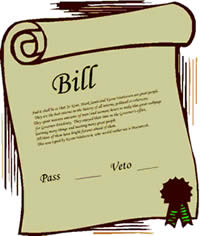Difference between Law and Regulation
Key Difference: Laws are actually rules and guidelines that are set up by the social institutions to govern behavior. These laws are made by government officials. Laws must be obeyed by all, including private citizens, groups and companies as well as public figures, organizations and institutions. Laws set out standards, procedures and principles that must be followed. Regulations can be used define two things; a process of monitoring and enforcing legislations and a written instrument containing rules that have law on them.
Many people have heard laws and regulations being used in the same sentence. It is also assumed that they are related to each other in many ways. However, definitions of both the words often cause confusion between the two words making people believe that they are the same. These words are different from each other in distinct ways. Laws are rules that are enacted by governing body, while regulation is the process of monitoring and enforcing the rules.
 Laws are actually rules and guidelines that are set up by the social institutions to govern behavior. These laws are made by government officials that in some countries are elected by the public to represent their views. In simple terms, laws are basically things that a person can and cannot do. It is enforced by government officials such as police officers, agents and judges. Laws are ideas that must go through the process of checks, balances and votes in order for them to become a law. However, the enactment of a law varies based on the government. In an autocracy, the leader has the power to pass any law he wishes. In a democracy, the bill to enact a law must be voted on by the different parts of the government. Laws must be obeyed by all, including private citizens, groups and companies as well as public figures, organizations and institutions. Laws set out standards, procedures and principles that must be followed. A law is enforceable by the judicial system, i.e. those responsible for breaking them can be prosecuted in court. There are various types of laws framed like criminal laws, civil laws, and international laws. Breaking a law is a punishable crime and has drastic consequences such as hefty fines, jail time and community service time.
Laws are actually rules and guidelines that are set up by the social institutions to govern behavior. These laws are made by government officials that in some countries are elected by the public to represent their views. In simple terms, laws are basically things that a person can and cannot do. It is enforced by government officials such as police officers, agents and judges. Laws are ideas that must go through the process of checks, balances and votes in order for them to become a law. However, the enactment of a law varies based on the government. In an autocracy, the leader has the power to pass any law he wishes. In a democracy, the bill to enact a law must be voted on by the different parts of the government. Laws must be obeyed by all, including private citizens, groups and companies as well as public figures, organizations and institutions. Laws set out standards, procedures and principles that must be followed. A law is enforceable by the judicial system, i.e. those responsible for breaking them can be prosecuted in court. There are various types of laws framed like criminal laws, civil laws, and international laws. Breaking a law is a punishable crime and has drastic consequences such as hefty fines, jail time and community service time.
Dictionary.com defines ‘law’ as:
- The principles and regulations established in a community by some authority and applicable to its people, whether in the form of legislation or of custom and policies recognized and enforced by judicial decision.
- Any written or positive rule or collection of rules prescribed under the authority of the state or nation, as by the people in its constitution.
- The controlling influence of such rules; the condition of society brought about by their observance.
- A system or collection of such rules.

Regulations can be used define two things; a process of monitoring and enforcing legislations and a written instrument containing rules that have law on them. David Levi-Faur’s Regulation and Regulatory Governance, Jerusalem Papers in Regulation and Governance states that regulation creates, limits, or constrains a right, creates or limits a duty, or allocates a responsibility. It can come in many forms including legal restrictions, contractual obligations, self-regulation, co-regulation, third-party regulation, certification, accreditation or market regulation. Regulation is basically ensuring that a law or legislation is put into effect and the details of how it is put into effect. The regulations are the responsibility of the executive branch.
Dictionary.com defines ‘regulation’ as:
- A law, rule, or other order prescribed by authority, especially to regulate conduct.
- The act of regulating or the state of being regulated.
- A governmental or ministerial order having the force of law
- As required by official rules or procedure
Laws and regulations are quite different from each other. While, laws are passed by the government, it falls up to regulations to ensure and enforce the law. It has the ability to maintain and regulate the laws that govern the people.
Image Courtesy: rodriguez9-3.pbworks.com, mymortgagerevolution.ca









Add new comment